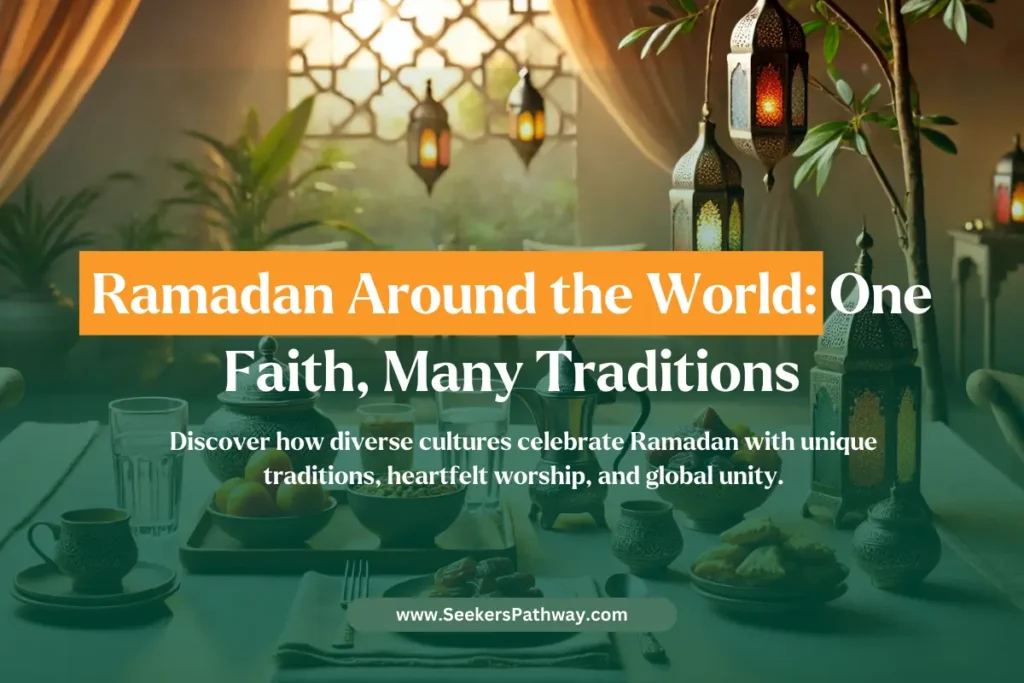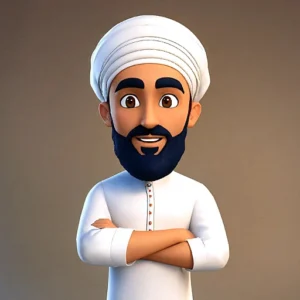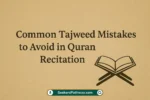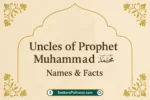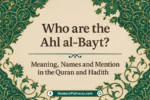One Ummah, Many Expressions
Ramadan is a holy month of fasting, prayer, and worship, which brings Muslims around the world together in devotion to Allah. Though the essential elements are the same, fasting, prayer, and charity, how they are expressed during Ramadan reflects the beautiful multicultural diversity of the Ummah. From his lantern-lit streets to their communal Iftars, the spirit of Ramadan adjusts to traditions in every area, yet all believers continue to keep quarterly fasts to achieve taqwa (God consciousness).
Allah says in the Qur’an:
“Indeed, this Ummah of yours is one Ummah, and I am your Lord, so worship Me.”
(Surah Al-Anbiya 21:92)
Global Ramadan Traditions
1. Saudi Arabia: The Heart of Spirituality
During Ramadan, it becomes even holier in Makkah and Madinah. Worshippers from across the globe fill Masjid al-Haram and Masjid an-Nabawi for Taraweeh, during which Qur’an recitations resonate for hours into the night. Locals affectionately host Iftar feasts for travelers and worshippers.
2. Egypt: Lanterns and Mesaharaty
Fanoos (Ramadan lanterns) is a centerpiece for Egyptian Ramadan nights. Streets illuminate with warm lights and the Mesaharaty (drummer) walks the neighborhood waking people for Suhoor, a centuries-old tradition.
3. Indonesia: Tadarus and Community Iftars
As the world’s largest Muslim nation, Indonesia observes Tadarus Qur’an sessions in mosques, and “Buka Puasa Bersama” (communal Iftars) unite families, friends, and strangers in prayer and generosity.
4. Turkey: Minaret Messages and Ramadan Cannons
Mosques glow with Mahya, lighted inscriptions hanging between minarets. In some cities, cannons boom to mark Iftar, a tradition that dates back to Ottoman times.

5. Morocco: Culinary Unity
Iftar table with harira soup, dates, and chebakia sweets. In cities and towns across the region, the time for Maghrib Adhan is most commonly announced by the sound of cannon fire or traditional drums.
6. Pakistan: Ramadan Bazaars and Spiritual Nights
Ramadan in Pakistan is colorful with night bazaars, Qur’an recitations, and daily communal Iftars. Homes are filled with everything from samosas to Rooh Afza, mosques gear up for packed Taraweeh prayers.
7. West Africa: Unity in Hospitality
In places like Senegal and Nigeria, Ramadan happens in the context of close community ties. Extended families and neighbors come together for Iftar, with particular attention to feeding the poor.
Conclusion: One Light, Many Lamps
While languages and clothing, and customs differ, Ramadan is the same light shining through different lamps. It serves as a reminder that the Ummah is united in worship, unified by the Qur’an, the fast, and the love for Allah. Ramadan reminds us that even if we inhabit different quarters of the globe, our hearts are directed toward the same Qibla, and our spirits yearn for the same mercy.
